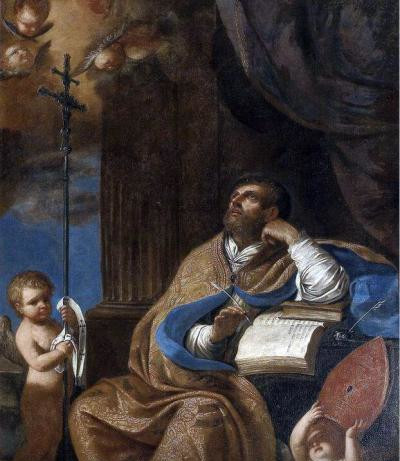
Saint of the Day for 30 July: St Peter Chrysologus
The Golden Speaker of the Ancient Church and His Enduring Influence
Name
St Peter Chrysologus
Title
Bishop and Doctor of the Church
Birth
380 approx., Imola
Death
450, Imola
Recurrence
30 July
Martyrology
2004 edition
Prayer
O God, who in bishop St Peter Chrysologus you gave the Church a distinguished theologian of the incarnation of the Word, grant that we, who venerate him as protector and teacher, may meditate in our hearts and express your mystery of salvation in our works. Through our Lord Jesus Christ, your Son, who is God. Amen.
Roman Martyrology
Saint Peter, known as Chrysologus, Bishop of Ravenna and Doctor of the Church, who, bearing the name of the blessed Apostle, carried out the same ministry with such mastery that he attracted the crowds to the faith with the net of his heavenly doctrine, satiating them with the sweetness of his divine eloquence. His transit took place on 31 July at Imola in Romagna.
The Saint and Mission
St Peter Chrysologus, Bishop of Ravenna in the 5th century, is widely recognised as one of the most significant figures in the spread of Christianity in ancient Italy. Known as ‘Chrysologus’ (meaning ‘golden speaker’) for his eloquence, he contributed greatly to the Christian mission through his powerful preaching and theological writings.
St Peter Chrysologus understood the importance of speech and eloquence in the Christian mission. His homilies, still preserved and studied today, show a deep understanding of Christian theology and a remarkable ability to make these complex truths accessible to his listeners. Through his preaching, he helped spread the message of the Gospel in a way that people could understand and relate to.
Furthermore, as a bishop, St Peter Chrysologus played an active role in the governance of his diocese, working for the spiritual and material well-being of his flock. He supported the Christian mission not only through his words, but also through his actions, showing a true commitment to service and love of neighbour.
St Peter Chrysologus reminds us that the Christian mission is carried out in many ways – through the preaching of the Word, the pastoral care of God’s flock, and the witness of life. His life inspires us to use our talents and skills for the service of the Gospel, and to remember that every Christian, in his or her own way, is called to participate in the Christian mission.
The Saint and Mercy
St Peter Chrysologus, famous for his powerful and moving homilies, embodied mercy in his ministry as bishop of Ravenna. Through his words and actions, St Peter reflected God’s love and mercy for humanity.
St Peter’s homilies often explore themes of mercy and redemption. In his sermons, he emphasised God’s unconditional love for humanity and the gift of grace, stressing the importance of mercy, forgiveness and reconciliation.
But St Peter Chrysologus’ mercy was not limited to words. As a bishop, he showed mercy through his actions, caring for his flock and taking concrete action to help the needy. His ministry was characterised by a deep love for people and a commitment to their spiritual and material care.
St Peter Chrysologus offers us a powerful example of how mercy can be lived through words and actions. He reminds us that mercy is not just a theological concept, but a call to action, a call to love and serve others as Christ has loved and served us. Through his example, St Peter invites us to embody mercy in our lives, showing love and kindness to all those we meet.
Hagiography
S. Peter Chrysologus was in the 5th century a defender of the Western Church against the Eutychians. He was born into a wealthy family in Imola and was baptised by Bishop St. Cornelius, by whom he was also instructed in the letters and ordained deacon.
After the death of the Bishop of Ravenna, the faithful gathered to elect a new bishop and begged St. Cornelius to support them in order to obtain confirmation of the election from Rome. Cornelius willingly accepted, and also took the deacon Peter with him. When he arrived in Rome, Sixtus III, enlightened by…
